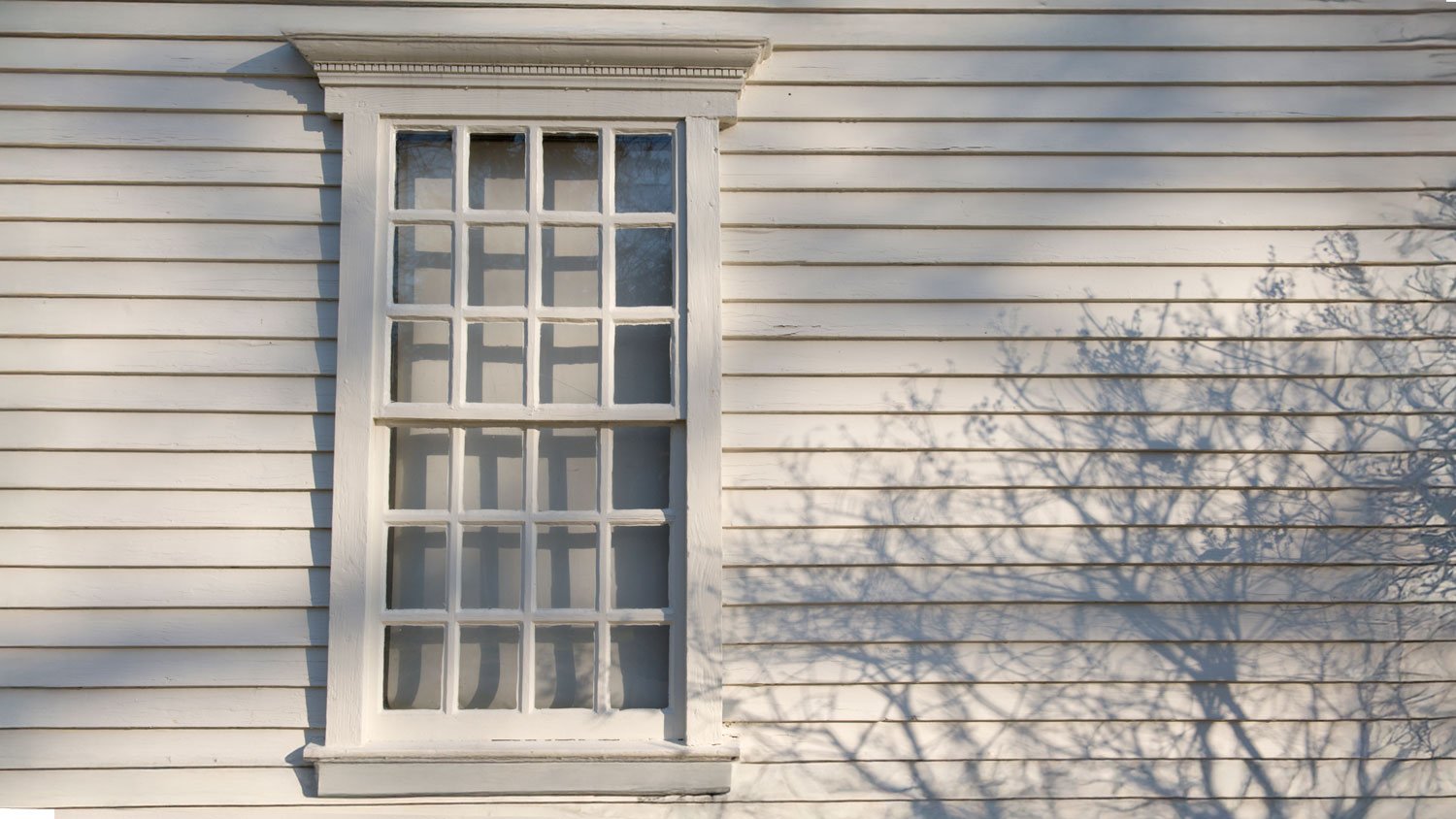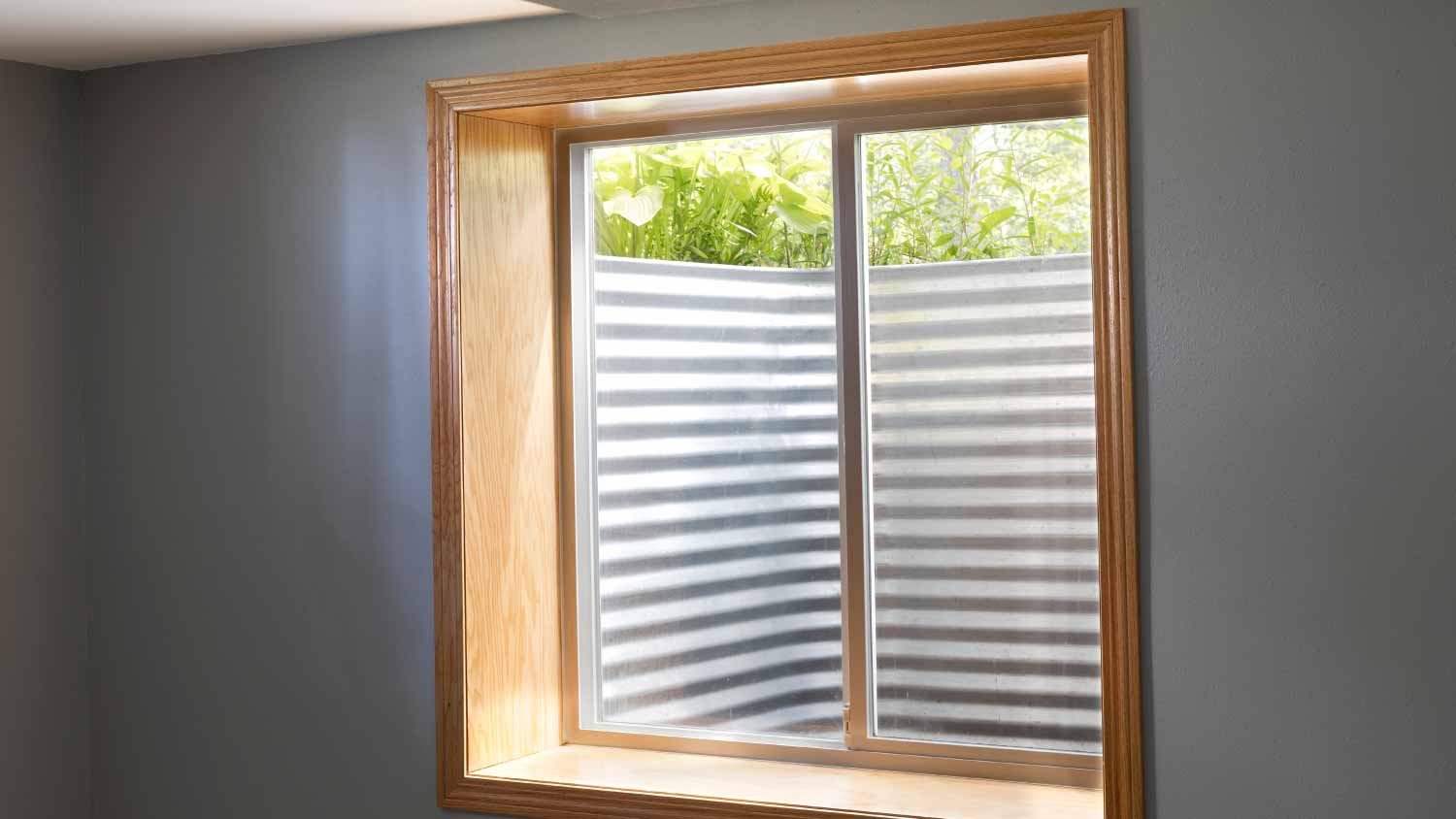In Need of Window Leak Repair? Here’s Who to Call for a Leaking Window
Window leaks? That reeks! Here’s who to seek…


Those large bay windows were probably a selling point when you bought the home. The view? The natural light? It was practically a real estate no-brainer. But now, that gorgeous focal window feature is leaking, forcing you to find window leak repair solutions fast. Luckily, you have options. Here’s who to call for window leak repair if it gets bad.
Who to Call for Leaky Window Repair
General contractors with in-depth window repair experience can fix minor leak issues. However, remember that your window warranty may only cover certain specialists, so always call the warranty company first before calling a window repair company near you.
If you suspect a more complex issue with your windows—such as a rotting frame or a poorly sealed pane of glass—we recommend calling a window installation specialist for proper repairs or replacements.
Who to Call for New or Recently Repaired Windows
Newer windows typically come with warranties that last anywhere from three to 15 years, depending on your plan. You might have also purchased a work warranty from a repair team if your windows were recently installed or altered. In either case, call the manufacturer or the installer, depending on who manages the warranty.
If the leak stems from poor installation or a faulty product, your warranty will likely cover the cost of the repair or replacement. The company should recommend a specific window installation specialist to come and take a look.
Additionally, the window installation specialist designated by your window’s manufacturer may hold specific certifications for fixing your unique brand and style of window—an extra perk to working with the assigned team.
Who to Call for Older Windows
Older windows naturally wear down over time. Wooden frames and sashes may begin to rot, for example. In other cases, a window may no longer fit perfectly into its frame when your home's foundation settles and throws off its alignment. A leak could also stem from something as simple as your older window sealant cracking or peeling.
If your windows are no longer under warranty and you do not know the manufacturer, call a local window installation specialist with great reviews and proven experience with window leaks. Even if the leak stems from around the window, these specialists can rule out any window-related problems first, as well as reinforce your windows from future leaks.
Can I Hire a Handyperson for Window Leak Repair?
If you are experiencing minor window leaks or condensation issues, your local handyperson can inspect your window and even perform some simple repairs like re-calking or replacing cracked or damaged seals. The cost to hire a handyperson averages just over $400, but most charge per hour at a rate of $50 to $150. Remember, though, if you think you have a complex window problem, it’s best to call in a window repair pro.
What Causes Windows to Leak?
Wondering why your window is suddenly letting water flow into your home? Check out these common causes to pinpoint the issue with your leaky window.
Regular Wear and Tear
Like other home features, window seals begin to wear down or break over time. This issue is typically the result of natural wear and tear, and it can cause cracked caulking and worn-out weatherstripping. Unfortunately, these problems can lead to air and water leaks, which are essential to fix as soon as you recognize them.
Improper Installation
If your windows weren’t installed or replaced properly, there might be hidden issues that are allowing water and air to leak into your home. For example, there might be gaps along the edge of the house wrapping that are causing window leaks. That’s why hiring the best window replacement contractor is important to complete the job right the first time.
Flashing and Structural Issues
One of the most common culprits for window leaks is missing or improperly installed window flashing, particularly for new windows. One tell-tale sign of this issue is staining at the top of the window, which would indicate leaks from the wall behind it. Luckily, this issue is relatively simple to repair by installing a long replacement stretch of flashing.
If you’ve inspected your window for signs of typical issues—like cracked caulking, worn-down weatherstripping, and flashing gaps—and still can’t find the leak’s origin, you may have a structural problem with your home. Unfortunately, design flaws in your home, like wall cracks or missing overhangs, can cause persistent leaks.
Severe Weather
Keep in mind that all bets are off for your windows in extreme weather. While normal rainfall shouldn’t make its way into your home when a window is working properly, even brand-new windows might be no match for a hurricane or tropical storm. But if you’ve got older windows, it’s common—though certainly not ideal—for you to see some moisture creep in after a relentless rainstorm.
Window Leak Repair Cost
The cost of professional window repair averages between $170 and $620, with labor itself ranging from $30 to $50 an hour. It may be tempting to cut these costs by taking on trickier projects yourself. But keep in mind that if the project goes wrong even slightly, you could end up with further water damage or the need to have your window replaced, which are both much more costly than hiring a pro initially.
Can I DIY Fixing a Leaky Window?

Calling an experienced professional is always a good move when it comes to resolving issues with the envelope of your house—that’s the term for everything that separates the interior of your home from the exterior, including the foundation, outer walls, roof, doors, and windows. But it is possible to stop window leaks in their tracks as a DIYer, provided you can determine the source of the excess moisture.
Whether you live in a classic 19th-century farmhouse or just moved into a modern ranch, each part of your window plays a role in keeping the elements outside—where they belong. When any of these parts break down, water can sneak into your home, either in a visible drip or slowly through the surrounding wall. Here’s how to search for the source of a window leak.
Fix the Sealant or Caulking
The border around the outside of your window keeps cold air, water, and pests out. But if the sealant or caulking hasn’t been redone in some time, this could indeed be the source of your leaky window. Re-caulking windows around the inside or outside of the window is a great DIY project for the handy DIYer and usually takes less than an hour, not including drying time. A tube of silicone caulk averages about $10 or less in most cases.
Inspect the Window Sash
The window sash is the inner frame that holds the glass pane, which fits snugly into your window frame as it opens and closes. If the sash is off track or there’s a problem with opening or closing it easily and firmly, it might be that your window needs a readjustment. Windows can warp over time, especially wooden ones, so if yours is not opening or closing properly, it could be a very easy entrance for excess moisture to make its way into your home.
Replace Old Window Flashing
Window flashing is the long piece of material—typically wood, vinyl, or metal—that sits above your window to redirect rain and debris away from the glass. If it’s no longer there or it’s seen better days, then it’s time to replace it.
Check the Roof and Walls
Water might look like it's leaking from the window, but that could just be how it’s flowing into your home from somewhere else. It may be coming in from the roof or walls. Look for obvious signs of drips, but if there are none, touch the wall surrounding your window to see if it feels damp. If it does, it’s time to check your roof. Go outside and look up at your roof to see if there are any shingles missing or if the eave is in disrepair. If so, then it’s time to call a roof repair specialist.
Benefits of Hiring a Roof Repair Specialist for Window Leak Repair
It can be hard to differentiate a leaky roof from a leaky window. Water leaking down from the roof pools along the top or sides of a window since it's often the first thing it hits on the way down. The water then breaks through the drywall or window frame over time.
You can tell the difference between a roof and window leak by checking for water stains on the ceiling, broken roof flashing, or even rusted chimney flashing.
Call a roof repair specialist if you're confident the water is coming from a roof leak. Otherwise, it's best to start with a window specialist to rule out issues with the window itself. In some cases, the two specialists may work in tandem to stop a roof leak and repair the window leak.
How Do Window Installation Specialists Fix Leaky Windows?
A specialist will likely examine signs of water damage, rot, or mold around each part of your window and the surrounding wall and ceiling.
They may then complete one of the following window leak repairs:
Replace interior and exterior caulking or sealant
Reseal a windowpane
Fix a small crack in the glass of your window
Replace the flashing or frame of your window, especially if your window leaks when it rains
Replace the exterior window flashing
Ensure the window fits properly within its casing
Clean or replace the window's track (for sliding windows and doors)
These pros will also know when it's more cost-effective to replace your window entirely. The cost to replace a window ranges from $175 to $2,300 (including labor costs), depending on the type of window you choose. However, buying a new window may mean that you end up paying less in the long run, especially since your older window is likely to continue to require repairs.





- Who Do You Call To Fix a Broken Window?
- Shedding Light on All the Different Parts of a Window
- 7 Common Window Problems and How to Avoid Them
- How Long Do Windows Last and When Should You Replace Your Windows?
- What Is a Window Well and What Are They Used For?
- How Long Does It Take to Replace a Window?
- 10 Tips on How to Make Windows More Energy Efficient
- 7 Bright Ideas to Childproof Your Windows
- 10 Window Maintenance Tips to Get the Best-Performing Windows You’ve Ever Had
- Roof or Windows? 10 Tips for Finding a Sneaky Water Leak Around the House















